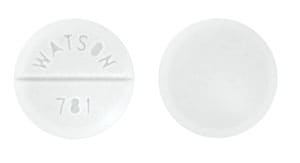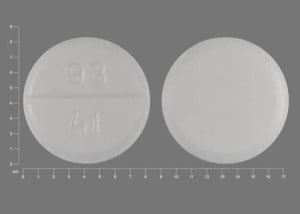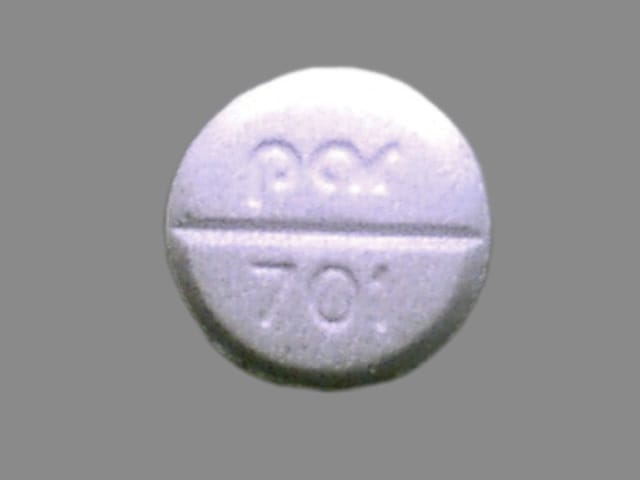What is clomiphene used for?
- Clomiphene is used to help women get pregnant.
- Clomiphene may be given to you for other reasons. Talk to your doctor.
Before taking clomiphene, tell your doctor:
- If you are allergic to clomiphene; any part of this medicine; or any other drugs, foods, or substances. Tell your doctor about the allergy and what signs you had.
- If you have any of these health problems: Liver disease, pituitary tumor, adrenal gland disease, or thyroid gland disease.
- If you have ever had liver problems.
- If you have any of these health problems: Ovarian cysts or vaginal bleeding.
- If you are pregnant or may be pregnant. Do not take clomiphene if you are pregnant.
This is not a list of all drugs or health problems that interact with clomiphene.
Tell your doctor and pharmacist about all of your drugs (prescription or OTC, natural products, vitamins) and health problems. You must check to make sure that it is safe for you to take clomiphene with all of your drugs and health problems. Do not start, stop, or change the dose of any drug without checking with your doctor.
What are some things I need to know or do while I take clomiphene?
- Tell all of your health care providers that you take clomiphene. This includes your doctors, nurses, pharmacists, and dentists.
- Have blood work checked as you have been told by the doctor. Talk with the doctor.
- Follow up with the doctor as you have been told.
- Long-term use may raise the chance of ovarian cancer.
- High triglyceride levels have happened with clomiphene. Tell your doctor if you have ever had high triglyceride levels.
- A pregnancy test will be done to show that you are NOT pregnant before starting clomiphene. If you get pregnant while taking clomiphene, call your doctor right away.
- To raise the chance of getting pregnant, talk with your doctor about the best time to have sex while taking clomiphene.
- This medicine may raise the chance of getting pregnant with more than one baby.
- This medicine may raise the chance of tubal pregnancy. Sometimes this may be deadly. Talk with your doctor.
- If you do not ovulate or get pregnant after 3 courses of clomiphene, do not take any more. Talk with your doctor.
- Tell your doctor if you are breast-feeding. You will need to talk about any risks to your baby.
How is clomiphene best taken?
Use clomiphene as ordered by your doctor. Read all information given to you. Follow all instructions closely.
- Follow how to take clomiphene as you have been told by your doctor. Do not use more than you were told to use.
What do I do if I miss a dose?
- Call your doctor to find out what to do.
What are the side effects of clomiphene that I need to call my doctor about immediately?
WARNING/CAUTION: Even though it may be rare, some people may have very bad and sometimes deadly side effects when taking a drug. Tell your doctor or get medical help right away if you have any of the following signs or symptoms that may be related to a very bad side effect:
- Signs of an allergic reaction, like rash; hives; itching; red, swollen, blistered, or peeling skin with or without fever; wheezing; tightness in the chest or throat; trouble breathing, swallowing, or talking; unusual hoarseness; or swelling of the mouth, face, lips, tongue, or throat.
- Signs of a pancreas problem (pancreatitis) like very bad stomach pain, very bad back pain, or very bad upset stomach or throwing up.
- Very bad dizziness or passing out.
- Swelling, warmth, numbness, change of color, or pain in a leg or arm.
- Eyesight changes, like blurred eyesight or seeing spots or flashes, may happen. They may show up or get worse in bright light. The chance that this will happen is greater in people who take clomiphene in higher doses or for a long time. Eyesight most often gets back to normal when the drug is stopped. The changes may be long-lasting or may not go away even after the drug is stopped. Use care when driving or doing other tasks that call for clear eyesight. Call your doctor right away if you have a change in eyesight.
- Ovarian hyperstimulation syndrome (OHSS) is a severe side effect that may happen in some women who use clomiphene. Call your doctor right away if you have severe stomach pain or bloating; very upset stomach, throwing up, or diarrhea; a big weight gain; shortness of breath; or change in how much urine is passed.
What are some other side effects of clomiphene?
All drugs may cause side effects. However, many people have no side effects or only have minor side effects. Call your doctor or get medical help if any of these side effects or any other side effects bother you or do not go away:
- Hot flashes.
These are not all of the side effects that may occur. If you have questions about side effects, call your doctor. Call your doctor for medical advice about side effects.
You may report side effects to the FDA at 1-800-332-1088. You may also report side effects at https://www.fda.gov/medwatch.
If overdose is suspected:
If you think there has been an overdose, call your poison control center or get medical care right away. Be ready to tell or show what was taken, how much, and when it happened.
Clomiphene Images
How do I store and/or throw out clomiphene?
- Store at room temperature.
- Protect from heat.
- Protect from light.
- Store in a dry place. Do not store in a bathroom.
- Keep all drugs in a safe place. Keep all drugs out of the reach of children and pets.
- Throw away unused or expired drugs. Do not flush down a toilet or pour down a drain unless you are told to do so. Check with your pharmacist if you have questions about the best way to throw out drugs. There may be drug take-back programs in your area.
Consumer information use and disclaimer
- If your symptoms or health problems do not get better or if they become worse, call your doctor.
- Do not share your drugs with others and do not take anyone else's drugs.
- Some drugs may have another patient information leaflet. Check with your pharmacist. If you have any questions about clomiphene, please talk with your doctor, nurse, pharmacist, or other health care provider.
- If you think there has been an overdose, call your poison control center or get medical care right away. Be ready to tell or show what was taken, how much, and when it happened.
This information should not be used to decide whether or not to take clomiphene or any other medicine. Only the healthcare provider has the knowledge and training to decide which medicines are right for a specific patient. This information does not endorse any medicine as safe, effective, or approved for treating any patient or health condition. This is only a brief summary of general information about this medicine. It does NOT include all information about the possible uses, directions, warnings, precautions, interactions, adverse effects, or risks that may apply to clomiphene. This information is not specific medical advice and does not replace information you receive from the healthcare provider. You must talk with the healthcare provider for complete information about the risks and benefits of using this medicine.






